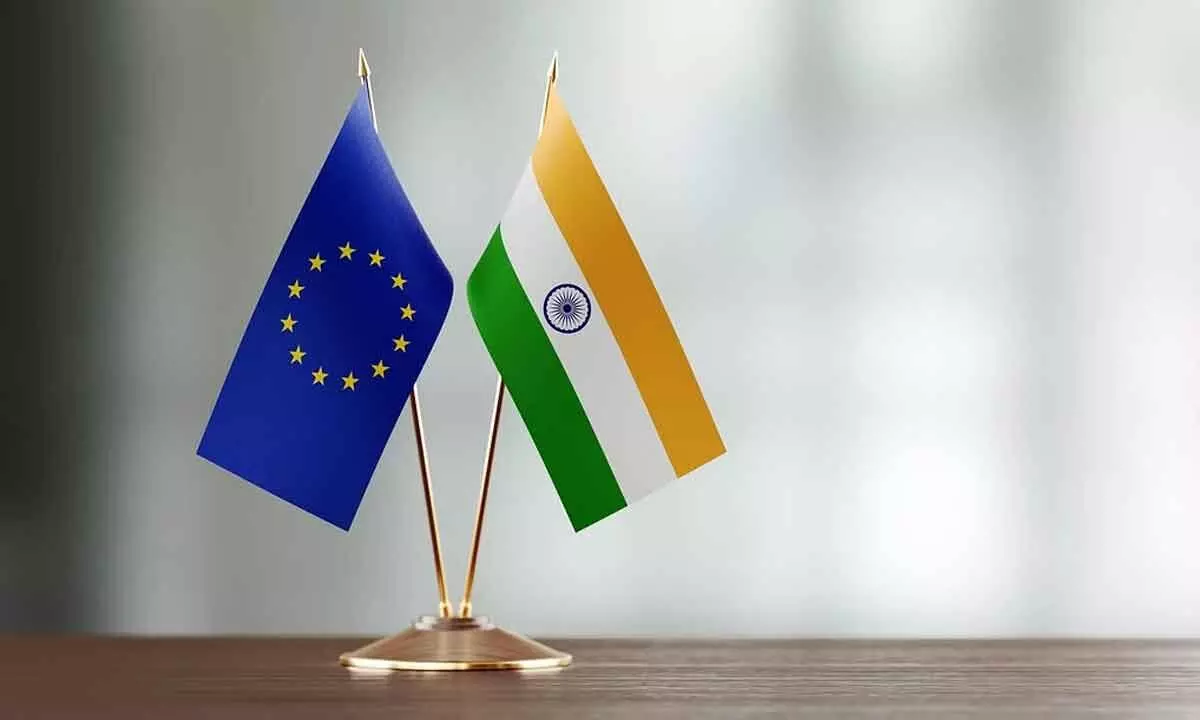FTA is a win-win for India-Euro block
image for illustrative purpose

India has signed the Trade and Economic Partnership Agreement (TEPA) with EFTA countries, comprising Switzerland, Iceland, Norway and Liechtenstein. EFTA is committed to promote investments with the aim of increasing the stock of foreign direct investments by $ 100 billion in the next 15 years, and to facilitate generation of one million direct jobs in India, through such investments. They do not cover foreign portfolio investment. For the first time in the history of FTAs, a legal commitment is being made about promoting target-oriented investment and creation of jobs. It is offering 92.2% of its tariff lines, which covers 99.6% of India’s exports. Its market access offer covers 100% of non-agri products and tariff concession on Processed Agricultural Products (PAP). India is offering 82.7% of its tariff lines, which covers 95.3% of EFTA exports of which more than 80% of imports is gold. The effective duty on gold remains untouched. Sensitivity related to PLI in sectors such as pharma, medical devices and processed food, among others, have been duly covered, while dairy, soya, coal and sensitive agricultural products are in the exclusion list.
India has offered 105 sub-sectors to EFTA and secured commitments in 128 sub-sectors from Switzerland, 114 from Norway, 107 from Liechtenstein and 110 from Iceland. The bilateral trade between India and Switzerland stood at $17.14 billion ($1.34 billion exports and $15.79 billion imports) last fiscal. In 2022-23, India's trade deficit with Switzerland was $14.45 billion, while the main imports from Switzerland include gold ($12.6 billion), machinery ($409 million), pharmaceuticals ($309 million), cooking and steam coal ($380 million), optical instruments and orthopaedic appliances ($296 million), watches ($211.4 million), soybean oil ($202 million) and chocolates ($7 million). Major exports from India include chemicals, gems and jewellery, shops and boats, machinery, certain types of textiles and apparel. Both sides have committed to address each other's sensitivities. The agreement also navigated the complex issue of territorial disputes, including Kashmir. Switzerland is looking towards international law and towards the UN to settle all of this. They put into the TEPA what they believe is the legal ground. Furthermore, the pact addresses intellectual property rights and encourages technological collaboration, setting a comprehensive groundwork for future economic and trade relations between India and EFTA.
India is swearing by sustainable development, inclusive growth, social development and environmental protection. The deal fosters transparency, harmonization and consistency of trade procedures. TEPA will empower our exporters' access to specialized inputs and create a conducive trade and investment environment, which is bound to boost exports and provide opportunities for the services sector. TEPA provides an opportunity to integrate into EU markets given that over 40% of Switzerland’s global services exports are to the EU. Indian companies can look to Switzerland as a base for extending its market reach to the EU. TEPA will give impetus to “Make in India” and Atmanirbhar Bharat by encouraging domestic manufacturing in sectors such as infrastructure and connectivity, manufacturing, machinery, pharmaceuticals, chemicals, food processing, transport and logistics, banking and financial services and insurance. TEPA will boost direct jobs for India’s young aspirational workforce in the next 15 years and provide training thereof. More importantly, it will facilitate technology collaboration and access to giants in precision engineering, health sciences, renewable energy, innovation and R&D.

